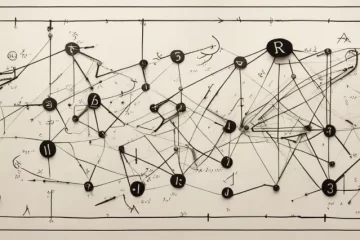Time Management Secrets: Why You Should Read Atomic Habits by James Clear

In today’s fast-paced society, our lives are often consumed by an overwhelming amount of responsibilities and distractions. From juggling deadlines at work to finding time for personal aspirations, it’s no wonder that time management has become an elusive concept for most of us. However, in his groundbreaking book “Atomic Habits,” James Clear offers a refreshing perspective on how to master the art of utilizing time effectively. With practical strategies and insightful advice, Clear’s book not only sheds light on the science behind habit formation but also provides a roadmap to optimize our daily routines. Join us as we delve into the world of time management, guided by the wisdom found within the pages of “Atomic Habits,” and discover how small, deliberate changes can yield enormous results in productivity and personal growth.
What is Time Management
Time management is the process of organizing and prioritizing tasks and activities to effectively allocate and utilize time. It involves creating a plan or schedule, setting goals, and establishing priorities to ensure that the most important tasks are completed within the available time. Effective time management enables individuals to maximize productivity, reduce stress, and achieve work-life balance. It often includes techniques such as setting deadlines, delegating tasks, prioritizing, and avoiding time-wasting activities or distractions.
Why is Time Management Important to Us
Time management is important to us for several reasons:
1. Efficiency: Time management helps improve efficiency by enabling us to prioritize tasks, set goals, and allocate time effectively. It helps us make the most of our available time and resources.
2. Productivity: Effective time management allows us to accomplish more in less time. By planning and organizing our tasks, we eliminate unnecessary distractions and focus on what needs to be done, which leads to increased productivity.
3. Reduced stress: Poor time management often leads to stress and anxiety. When we feel overwhelmed with too many tasks and deadlines, we may experience heightened levels of stress. Proper time management helps reduce stress by creating a structured approach to our work and allowing us to meet deadlines without feeling overwhelmed.
4. Improved decision-making: Time management provides us with the space and opportunity to make better decisions. When we are rushed and under pressure, we are more likely to make hasty choices or overlook important details. By managing our time effectively, we can allocate sufficient time for decision-making processes and ensure that we make informed choices.
5. Work-life balance: Time management helps us balance our personal and professional lives. By managing our time effectively, we can prioritize our responsibilities, allocate time for leisure activities and personal growth, and maintain a healthy balance between work and personal life.
6. Self-discipline and self-motivation: Time management requires discipline and self-motivation. By practicing good time management skills, we develop discipline to stick to a schedule, avoid procrastination, and stay focused on our goals. This also enhances our self-motivation as we see ourselves accomplishing tasks and reaching milestones.
Overall, time management is essential for our overall well-being, productivity, and success. It enables us to make the most of our time, reduce stress, and achieve a balance between work and personal life.
Unlocking Time Management from Atomic Habits

Atomic Habits Introduction
Atomic Habits” by James Clear is a self-help book that focuses on the power of small habits and how they can lead to significant personal and professional development. Clear introduces the concept of atomic habits, which he defines as small, consistent actions that can bring about substantial change over time. The book is structured around the Four Laws of Behavior Change: making habits obvious, attractive, easy, and satisfying. Clear shares practical strategies and techniques for implementing these laws, including habit stacking, habit tracking, and habit shaping. He emphasizes the importance of understanding the role of identity in behavior change and explores various strategies to shape one’s self-image. Furthermore, the author delves into topics such as decision-making, environment design, and the power of small improvements. Overall, “Atomic Habits” offers a comprehensive guide for anyone interested in developing new habits or breaking old ones by focusing on the small changes that can lead to extraordinary results.
Time Management Methods
In his book “Atomic Habits,” author James Clear discusses various time management methods and strategies. Here are some of the key ones mentioned in the book:
1. The Two-Minute Rule: If a task takes less than two minutes to complete, do it immediately. This helps prevent small tasks from piling up and creating a backlog.
2. Habit Stacking: Associate a new habit you want to develop with an existing habit. This creates a routine that makes it easier to integrate the new habit into your daily life.
3. Implementation Intentions: Create a plan for how and when you will complete a specific task. Be specific about the time, location, and other aspects of the task to increase your chances of following through.
4. Time Blocking: Set aside specific blocks of time for different activities. This helps create a structured schedule and ensures you allocate enough time for each task or goal.
5. Habit Tracking: Keep a record of your actions to track your progress and hold yourself accountable. This can be done using various methods such as habit tracking apps, habit trackers in journals, or simple checklists.
6. Parkinson’s Law: Work expands to fill the time available for its completion. Applying this law, you can set strict deadlines or time limits for tasks to increase focus and efficiency.
7. The Eisenhower Matrix: Prioritize tasks by urgency and importance using a four-quadrant matrix. This helps identify tasks that are critical and need immediate attention, enabling better time allocation.
8. The 1% Rule: Strive to improve by 1% consistently over time. Small incremental improvements add up and can lead to significant progress in the long run.
These time management strategies from “Atomic Habits” aim to help individuals develop effective habits, overcome procrastination, and make the most of their time.
Atomic Habits Quotes
Atomic Habits quotes as follows:
1. “Habits are the compound interest of self-improvement.”
2. “It’s not about any single accomplishment. It’s about the cycle of endless refinement and continuous improvement.”
3. “You do not rise to the level of your goals; you fall to the level of your systems.”
4. “Improvement is not just about learning more, but about reaching the point where you do not have to think about it anymore.”
5. “Small changes often appear to make no difference until you cross a critical threshold.”
6. “Every action you take is a vote for the person you want to become.”
7. “You don’t need to be perfect, you just need to be better than before.”
8. “Habits are the entry point to a system of compounding growth.”
9. “Make it easy to do right and hard to go wrong.”
10. “Your habits are how you embody your identity, they are your identity in action.”

More Books About Atomic Habits by James Clear
Book 1: The 10 Natural Laws of Successful Time and Life Management
Author: Hyrum W. Smith
Synopsis: In “The 10 Natural Laws of Successful Time and Life Management,” Hyrum W. Smith provides practical advice for mastering the art of efficient time management. By focusing on ten natural laws, Smith helps readers understand how to prioritize tasks, eliminate distractions, and cultivate productive habits. This book is an excellent complement to Atomic Habits, as it offers valuable insights into organizing routines and schedules, resulting in enhanced individual productivity.
Book 2: Mini Habits: Smaller Habits, Bigger Results
Author: Stephen Guise
Synopsis: In “Mini Habits,” Stephen Guise emphasizes the power of starting small when developing new habits. Guise suggests that aiming for significant changes right away can be overwhelming and discouraging. By implementing mini habits, readers can create a foundation for long-lasting change. This book provides clear strategies on how to break down larger goals into easily achievable actions, aligning with the essence of Atomic Habits.
Book 3: The 5 AM Club: Own Your Morning, Elevate Your Life
Author: Robin Sharma
Synopsis: “The 5 AM Club” by Robin Sharma delves into the importance of utilizing the early morning hours for personal growth and self-improvement. Sharma highlights the significance of establishing a strong morning routine to kickstart the day effectively. By incorporating rituals aimed at mental, physical, and emotional well-being, readers can build a solid foundation for achieving success. The insights from this book can complement the strategies presented in Atomic Habits, aiding readers in developing an optimal framework for personal transformation.
Book 4: High Performance Habits: How Extraordinary People Become That Way
Author: Brendon Burchard
Synopsis: In “High Performance Habits,” Brendon Burchard explores the distinct habits and mindset adopted by high achievers. By analyzing the behaviors of successful individuals, Burchard identifies six essential habits that lead to extraordinary results. By combining this book’s principles with those laid out in Atomic Habits, readers can further improve their daily practices and create a solid foundation for long-term success.
Book 5: The Power of Now: A Guide to Spiritual Enlightenment
Author: Eckhart Tolle
Synopsis: While “The Power of Now” isn’t specifically focused on habit-building, it explores the importance of being present and living in the moment. By harnessing the power of mindfulness and consciousness, Eckhart Tolle enlightens readers on how to free themselves from past regrets or future anxieties. Integrating the philosophy of presence can greatly enhance the effectiveness of habit formation, as illustrated in Atomic Habits.
By reading these five books in conjunction with Atomic Habits by James Clear, individuals can gain a comprehensive understanding of habit formation, time management, morning routines, high-performance habits, and the power of being present. Implementing the wisdom and strategies shared within these pages can lead to lasting personal growth, increased productivity, and a more fulfilling life.



0 Comments